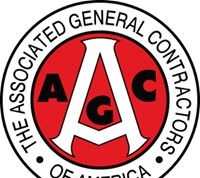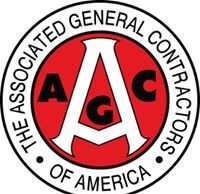DOE Announces $27 Million to Help 40 State, Local and Tribal Communities Lead America’s Equitable and Resilient Clean Energy Future
President Biden’s Investing in America Agenda is Improving Critical Infrastructure and Removing Barriers to Clean Energy Deployment in Historically Underserved Communities
ATLANTA, GA – RealEstateRama – In support of President Biden’s Investing in America agenda and the historic Justice40 Initiative, today the U.S. Department of Energy announced $27 million in financial and technical assistance awarded to 40 partner teams of states, local governments, and Tribes through the Energy Future Grants (EFG) Program. U.S. Secretary of Energy Jennifer M. Granholm made the announcement during a visit and tour of Georgia Institute of Technology in Atlanta, GA.
“A lasting clean energy transition starts with state, local, and Tribal governments in the driver’s seat, taking the wheel in pursuit of their own unique clean energy strategies,” said U.S. Secretary of Energy Jennifer M. Granholm. “With support from the Energy Future Grants Program, local communities can devise their own projects to solve challenges, create new jobs, and make their clean energy goals a reality.”
Energy Future Grants provides financial and technical assistance to support multijurisdictional partnership efforts to advance innovative clean energy programs that will enhance energy affordability, access, and opportunities for communities. EFG fosters out-of-the-box thinking and collaboration to help develop solutions to encourage and facilitate successful clean energy projects benefiting disadvantaged communities. The 31 Local Governments, 7 States, and 2 Tribes receiving funding today, along with 253 subrecipients include additional government partners, community benefit organizations, non-profits, universities, Tribal entities, small businesses, and more. Selected partnerships will use funds for planning activities that include strengthening community resilience, transportation and building electrification, clean energy microgrid deployment, solar developments in disadvantaged communities (DACs), and robust local engagement for an equitable energy transition.
Specific projects receiving funding are:
- EmPOWER Georgia: A Tri-City Alliance for Scalable, Equitable, and Innovative Clean Energy Solution, City of Decatur, GA: Four cities in Georgia will seek to develop multijurisdictional, deployment-ready blueprints for three clean energy innovations that center community benefits and advance progress towards municipal clean energy goals that include energy savings for households in disadvantaged communities, job creation opportunities and workforce training in new clean energy enterprises, and increased energy resilience through local energy generation and grid stability in context of increasingly severe weather events. The project will explore community and labor agreements as part of their community engagement and has the support of project partners’ expertise in workforce development programming. (Award amount: $500,000)
- Plugged in for Good (PIFG) Energy Alliance, City of Las Cruces, NM: This project will utilize electrification and weatherization to reduce residential energy burden; promote clean energy cooling, heating, and water systems; ensure resident comfort and safety during extreme heat events; and develop local workforce cohorts that ensure ‘high road’ opportunities. This project involves comprehensive workforce education and training through registered apprenticeships and covering costs and paid time for professional development and continuing education leading to steady work retrofitting low and middle-income homes, supported by project partner expertise and workforce needs assessment. (Award amount: $470,000)
- Building Community Resilience Through Regional Connections and Energy Investments, State of North Carolina – Central Pines Regional Council, NC: The project will consist of a regional technical assessment and community planning process for a network of energy resilience hubs. During disasters and disruptions, these hubs would provide backup power generation to disadvantaged communities through solar and storage, vehicle-to-building, or other innovative technology. During normal times, they will act as central community access points for energy efficiency, green workforce, and sustainability resources. The project will pay living wages for all contractors and require that contractors provide supportive services as part of their community engagement process. (Award amount: $500,000)
- Evaluating Municipal Processes for Efficient Clean Energy Permitting, Alaska Energy Authority: This project will improve governance and financial systems of 45 disadvantaged communities to identify and remove barriers to clean energy development within municipal code, permitting, or regulatory processes. The Alaska Energy Authority will coordinate with organized labor to address needs for local and targeted hiring goals, card-check neutrality, and possible provisions advancing programs to attract, train and retain new workers. (Award amount: $496,725)
- Harris County Clean Energy Plan for Community Building, Harris County, TX: The project will identify communities and community facilities that will act as hubs for resiliency and clean energy in Harris County municipalities. The plan will develop selection criteria for public community buildings based on community profiles as well as the applicability of each technology to the candidate facilities. The project will leverage existing local workforce development and apprenticeship programs – either by expanding or creating complementary programs – to create clean energy job opportunities stemming from the resilience hubs. (Award amount: $500,000)
- Eco-D Equitable Electrification Initiative, City of Detroit, MI: EcoDistricts, or Eco-Ds will focus on building electrification and solar development efforts in disadvantaged neighborhoods. The new EcoDistricts will be created in Justice40 census tracts. The project has strong partnerships with labor union and workforce development organizations that will be leveraged to create opportunities in registered apprenticeships, workforce development, and business development for residents. The project also will employ local contractors whenever possible, enable bulk contract options, and look into bulk purchasing programs to reduce clean energy technology costs for contractors. (Award amount: 500,000)
- Modeling for a Salmon-Friendly Energy Transition, Columbia River Inter-Tribal Fish Commission, OR, WA, ID: Led by a Tribal consortium, this project focuses on quantitative river and energy system models adapted to the Columbia River Basin to support both state and Tribal policy development that prioritizes the uses of demand side resources (DSRs). The project also aims to help protect and restore salmon populations in the Columbia River Basin, which will enhance member Tribes’ economic and cultural sovereignty. (Award amount: $500,000)
- Community-Based Weatherization / Electrification Together, City of River Falls, WI: This building sector project will create a universally scalable and adaptable approach for crafting localized, adaptable electrification programs across sectors in a collaborated effort uniting states, localities, and tribal communities in partnership with community-owned electric utilities and non-profit organizations. This project combines electrification with weatherization, which will lead to a decrease in utility costs and greenhouse gas emissions and increase adaptability to cold and extreme weather events. (Award amount: $500,000)
- Water Investments for Sustainable Energy (WISE) Ohio, State of Ohio – Sustainable Ohio Public Energy Council, OH: This project focuses on sustainable energy investments for Ohio’s water utilities. The project will improve facility energy efficiency through building upgrades and operational procedures, offset energy burdens through onsite solar generation, and improve resiliency with battery backup systems. (Award amount: $500,000)
- Just Resilience, State of New Jersey—New Jersey Dept. Of Environmental Protection: Using extreme heat mitigation as a central focus, Just Resilience will develop and implement a climate adaptation plan through Community Resilience Hubs that offer significant, measurable and replicable environmental, social and economic co-benefits to DACs and residents of Greater Passaic River Watershed. Workforce development and higher-wage pathways will be pursued. The project has a high emphasis on health concerns for disadvantaged communities and Justice 40 commitments, as it relates to extreme weather events. (Award amount: $500,000)
- Reducing Energy Burden in Lowest-Barrier Affordable Housing, City of Orlando, FL: This building sector project will develop a plan for installing energy efficient and clean energy appliances in affordable housing meant for tenants who are formerly unhoused or at risk of being unhoused, partnering with state, county, and non-profit entities. Community outreach meetings will provide multi-lingual services along with childcare in an attempt to engage as much of the population as possible. The city of Orlando also has a long-standing track record for including minority/women-owned business enterprises. (Award amount: $489,837)
- EV Equity Workforce Program (EVequity), Los Angeles County, CA: This project will work with key public and private sector partners to devise an electric vehicle (EV) infrastructure workforce training and placement program, drawing participants from high need communities and communities of color throughout the Los Angeles region, in an effort to bring equity and diversity to the field of electric vehicle infrastructure development. The project will have strong partnerships with local unions and community and technical colleges, respect collective bargaining and high wages and benefits principles, and provide supportive services for its training programs. (Award amount: $500,000)
This funding marks the first round of competitive awards granted through the EFG Program since the program was established in 2023. 40 selectees will receive up to $500,000 in Phase 1 for planning, technical assistance, and cohort-based support, and become eligible to compete for approximately $1M in implementation funding in Phase 2. The program also contributes to the Biden-Harris Administration’s Justice40 Initiative commitment to support eligible governments to direct 40% of the overall benefits of the EFG Program to flow to disadvantaged communities.
Other Awards Announced Today Include:
- City of Gainesville, FL ($130,405)
- City of Clearwater, FL ($500,000)
- City of San Diego, CA ($500,000)
- Pueblo de San Ildefonso, NM ($498,625)
- City of Yonkers, NY ($498,668)
- State of Minnesota – Minnesota Department of Health ($498,600)
- City of District Heights, MD ($500,000)
- City of Carbondale, IL ($406,610)
- City of Oakland, CA ($500,000)
- Brooklyn Borough, NY ($500,000)
- State of Alaska – Alaska Housing Finance Corporation, AK ($500,000)
- City of Saint Paul, MN ($500,000)
- City of Cincinnati, OH ($499,930)
- State of Hawaii – Hawaii State Energy Office ($500,000)
- City of Madison, WI ($500,000)
- Town of Andover, MA ($360,740)
- County of Allegheny, PA ($500,000)
- City of Richmond, VA ($499,987)
- City of Baltimore, MD ($500,000)
- City of Indianapolis, IN ($500,000)
- City of Duluth, MN ($500,000)
- Hennepin County, MN ($500,000)
- City of North Miami, FL ($500,000)
- City of Madison Heights, MI ($500,000)
- State of Colorado – Colorado Energy Office ($500,000)
- Village of Broadview, IL ($476,487)
- Town of Littleton, MA ($500,000)
- City of Erie, PA ($500,000)
EFG is partnering with ENERGYWERX, through a Partnership Intermediary Agreement (PIA), to offer awardees ample technical assistance to reduce identified barriers, support project development, and build capacity for awardees. The Energy Future Grants Program Technical Assistance Cohorts initiative is managed by ENERGYWERX in partnership with DOE, a collaboration made possible through an innovative Partnership Intermediary Agreement set up by DOE’s Office of Technology Transitions. Technical assistance opportunities for awardees include in-person and virtual trainings, as well as peer-to-peer cohort sessions where grantees learn from clean energy experts and network with peer local governments, states, and Tribes pursuing similar projects. Additionally, EFG is partnering with the National Renewable Energy Lab (NREL) to host an initial Barriers Workshop for grantees.
Visit the DOE webpage to learn more about the EFG Program, how to apply, and resources available to eligible grantees.
###















